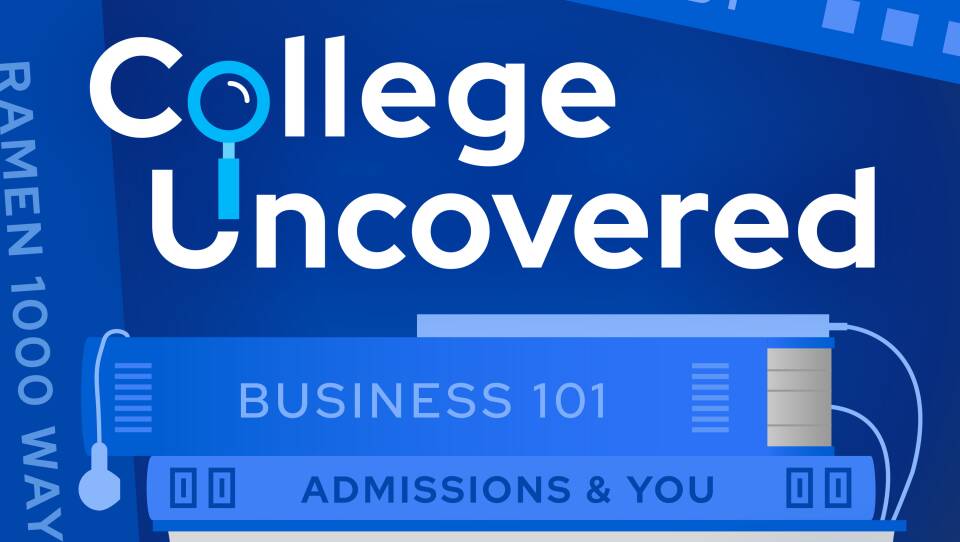GBH News’ latest podcast “College Uncovered” reveals the well-hidden inner workings of higher education and offers tips for students and families as they navigate the angst-ridden process of applying to some of the nation’s 4,000 degree-granting institutions. We spoke with Kirk Carapezza, GBH News managing editor and higher education reporter, who hosts along with Jon Marcus, higher education editor for The Hechinger Report, eight episodes about the problems, pitfalls, risks and rewards to students who decide to pursue a college degree. In its first week, the podcast had nearly 19,000 downloads and it ranked No. 44 on Apple.
What’s unique about this education podcast?
We're covering colleges like we cover businesses. We’re telling people things about college that they don't know. It's consumer-facing — presenting what you need to know about this opaque industry. There's a lack of transparency and you have families who are shopping around for college and unable to get basic information, like how much is it going to cost? How long might it take to graduate?
Why is it valuable to have The Hechinger Report as a partner?
Jon Marcus and I have co-reported stories over the years, he in print and me on the radio for GBH News, Marketplace and NPR. Journalists by nature are extremely competitive but this is a good model in a time when newsrooms are strapped for resources. The Hechinger Report is well-known to people inside the higher ed industry and GBH reaches a more general audience. We get to reach their niche audience and they benefit from our megaphone.
Are Americans losing faith in college?
Surveys show that they are. Fewer Americans are going to college straight out of high school, and almost half of American parents say they prefer that their children not enroll in a four-year college. But we work in an economy that demands education — we need more college graduates. And the research shows it’s worth it. If you earn a college degree within four years, you'll earn more money, you’ll be happier and you’ll live longer.
Why has the attitude about college changed so quickly and dramatically?
It's a generational shift. Today’s high school students are very skeptical of higher education. They think ‘college’ and they think ‘crushing debt.’ When I went to college more than 10 years ago, the message was, go get a four-year degree, study whatever you want and then you'll be set. Then there’s my father’s generation. My dad was the son of Italian immigrants, grew up in a working-class family and got a full ride to go play football at Brandeis, an institution founded after World War II to increase access for ethnic minorities and women. That transformed his life and the trajectory of our family.
What have you learned about colleges that surprises you?
I'm most surprised by the little-known practices that appear to support colleges’ bottom lines but don't necessarily support students and families. For example, I didn't know that until 1989 colleges weren't required to report their graduation rates. Today they are required to report them, but graduation rates are measured not every four years, but every six years. So, if a college graduates all its students within six years, they can claim they have a 100% graduation rate.
What impact do you hope the podcast has?
I hope it leads to more transparency and it gives consumers the tools they need to make smart decisions. I hope that it leads to more accountability and that it encourages consumers — students and families — to ask the right questions before they make what could be one of the biggest investments of their lives.
What will future episodes address?
We have an episode "The ‘M’ Word" about the amount of money that schools are spending on marketing. Another is about “enrollment management,” which is a shadow industry where, for example, schools buy lists of students’ names so they can market themselves directly to individuals.
How will you know if the podcast is a success?
We're telling stories that educate both college administrators and policymakers — and also people like my sister who has three college-age kids. It's tricky to speak to both audiences. If we reach both, we're doing our job right.
Listen to and learn more about “College Uncovered” here.




